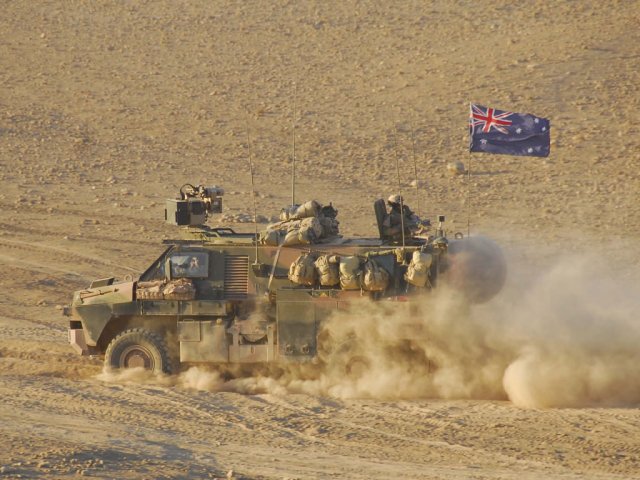
Prime minister Julia Gillard’s April 17 speech on Afghanistan was widely heralded as a change of policy. It is and it isn’t.
It does set out a schedule for a partial withdrawal of troops — thereby bringing Australia belatedly into line with the US drawdown of troops by 2014. But it also affirms that Australia, like the US, will not withdraw all its troops.
Gillard’s speech was full of doublespeak, but it does represent a shift in the pro-war camp. It is an implicit recognition that the war is not going well — even on their terms — and that its unpopularity at home is becoming a serious political risk.
Until now, the Gillard government has maintained that Australia — the largest non-NATO contributor to the so-called International Security Assistance Force — would not leave Afghanistan in the foreseeable future. Like Liberal PM John Howard before her, Gillard has proclaimed her allegiance to the US-Australia war alliance.
Just last month, Gillard was adamant the Australian troops would stay in Afghanistan beyond 2014, the date by which tens of thousands of US troops are scheduled to have left. Now she says that only some Australian forces will stay in Afghanistan beyond 2014.
Contrary to many mainstream media reports, the US, while yet to sign a new Status of Forces Agreement with Afghanistan, will not remove all its soldiers after 2014. Significant numbers will remain as military advisors, trainers and combatants.
There are several likely reasons for the Australian government’s change of tack.
One of them is the negotiations for the Australia-Afghanistan Strategic Agreement for after 2014, which Gillard hopes to sign next month.
Sensing the political mood is another reason. In the 12 months to November last year, Essential polling found that public support for pulling Australian troops out of Afghanistan increased from 56% to 64%. A March 19 Essential poll again found 64% support a troop withdrawal.
The poll results are significant considering that over 10 years, 32 Australian soldiers have died compared with nearly 3000 US-NATO soldiers. Australians are no longer convinced by the “good” war rhetoric, nor are they buying the “national interest” hype. This is despite the most sanitised and media-managed “reporting” of a war yet seen, and the government’s refusal to engage with the public about the war beyond a yearly statement to parliament.
Similarly in the US, the political mood has shifted dramatically over the past year.
A CBS News/New York Times poll last month showed 69% of US people want the troops out. Fifty five percent say they do not have a clear idea of what the US is fighting for since the assassination of Osama bin Laden.
The deaths of nearly 2000 US soldiers for no tangible gain and the enormous financial cost of the war — US$557 billion and counting — prompted Lieutenant-Colonel Daniel L Davis to describe the war as an “absence of success on virtually every level”.
Gillard’s speech also made clear what has not changed: Labor’s determination to maintain the Australia-US war alliance in which Australia undertakes “niche training” for the Afghan army and police. This includes training warlord militias like that of the infamous gangster Matiullah Khan who has been made police chief in Oruzgan province where most Australian troops are stationed.
Gillard hinted at other reasons for the policy change — namely that access to Afghanistan’s huge mineral resources cannot seriously get underway while the war continues.
The occupiers are engaged in the political rehabilitation of some of the most brutal and reactionary figures from the days of the former Soviet occupation, but the war will not yet end for ordinary Afghans. The former MP and democratic activist Malalai Joya recently told Australian audiences that such “political reconcilation” is an act of bastardry.
Joya said Western troops must leave as a first step for Afghans to be able to exercise self-determination.
Gillard’s speech is an implicit recognition that after a decade of war and billions of dollars wasted, Afghanistan is a less secure country than it was after the 2001 invasion. The Taliban’s recent attacks on diplomatic missions in Kabul — supposedly the only “safe zone” in Afghanistan — is another reminder of this.
Those who have campaigned to end this unjust war now have to re-double their efforts to get all the troops out and demand that war reparations be paid to grassroots, Afghan-led organisations to rebuild their war-ravaged country.
